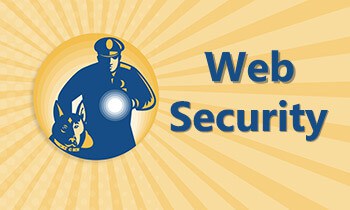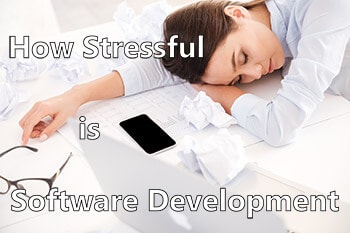How to Prepare for a Front End Developer Interview
 In whichever field one may choose to pursue, interviews are not always a walk in the park. Neither is front-end development an exception in this regard.
In whichever field one may choose to pursue, interviews are not always a walk in the park. Neither is front-end development an exception in this regard.
You may just have cleared your studies, a short computer programming course, or you just want to switch careers and step into the front-end development field and are wondering how to succeed in this unavoidable interview stage.
While there is no single format to ace a front-end developer interview, taking time to prepare for what to expect goes a long way in giving you the confidence to face the interviewers. This being a technical profession, you should certainly prepare for technical questions involving coding.
In this article, we will cover various sections you should consider when applying for a front-end development job. But first things first, let’s discuss where you can find these front-end development jobs.
Where to find front-end developer jobs
There are various platforms where you can find jobs in front-end development, here are a few.
LinkedIn is a social network that links employers and professionals. There are various jobs updated every day on the LinkedIn Front-end developer jobs page.
If you see a job that interests you, you may easily click through the links and apply to it straight from LinkedIn. You should always fill up your profile with relevant details about yourself, skills and qualifications because your prospective employer will certainly check out your profile.
Stack Overflow
Stack Overflow is an online community that helps developers learn, share, build, and arguably one of the best places to find front-end developer jobs. Just like LinkedIn, you should complete your profile and participate in answering questions on the platform to improve your chances.
Indeed
Indeed is a job listing website that allows job seekers to post their resume and employers list employment opportunities including front-end development jobs.
Toptal
Toptal networks top talents in software engineering, design, finance, and project management around the world and connect them to companies. You can apply for a front-end developer job and join teams of distributed virtual developers and work from anywhere.
CareerBuilder
CareerBuilder provides job opportunities and advice to job seekers. They list employment opportunities for front-end development in various companies.
Applying for jobs
 Once you have found a position that interests you, the application process follows. You should do your homework about the company and their culture, and then prepare to write a cover letter that is tuned to the position you are applying for.
Once you have found a position that interests you, the application process follows. You should do your homework about the company and their culture, and then prepare to write a cover letter that is tuned to the position you are applying for.
There’s no single formula to this, so we will just list links to a few resources you can look at for inspiration;
- Job Hero – Front-end developer cover letter sample.
- The Balance Careers – Sample front-end web developer cover letter and resume examples.
- Indeed – Front End Developer Resume Samples.
- Medium – Avoid getting your front-end developer resume thrown out.
- Freecodecamp – 7 key steps to getting your first software engineering job. This is a great resource, especially for this technical field.
- Youth Central – Sample cover letter with no work experience.
- The Balance Careers – Learn how to apply for jobs online since most of your applications will be done online.
- Prospects – Write a successful job application.
- Wiki How – 15 steps on how to apply for jobs is like a universal guide to various job application processes.
Applying for jobs you do not qualify for
It’s common to find job postings that ask for 5 years’ experience when you only have 3 years of experience or even less. Or you feel you are not well qualified in one of the listed skills.
What do you do?
While it may seem reasonable to only apply for jobs you are qualified for, you do not need to be 100% qualified to be the best candidate. You should not miss out on a job because you didn’t meet one of the job requirements.
Sometimes, what determines if you will get hired is how you show enthusiasm, passion for the job, your urge for learning and self-improvement, how you connect with the interviewer and soft skills as you respond to the non-technical interview questions.
How to Increase your chances of getting an interview
Submitting a catchy cover letter does not guarantee that you will get an interview. Since there are hundreds of applicants applying for the same job as you, recruiters look at specific pointers to filter out a few candidates for the job interview.
If you are just starting out in the development field with little to no experience, it may really be hard to get the interview. Here are a few things you can do to increase your chances of being granted an interview.
Create a GitHub Account
GitHub is a version control system using Git that allows developers from all spheres to collaborate and share code bases. Having a GitHub account with a few posted projects not only shows your coding experience but also means you know how to use version control systems which are a major requirement for most developer jobs.
Always keep your GitHub account updated with your latest projects. Additionally, be contributing to other open source projects to grow your experience in the same. If you have good progress on GitHub and a prospective employer happens to check it out, you have a great chance of landing a job interview even without prior experience.
Create a Portfolio website
A portfolio website gives a prospective employer a sense of who you are, what projects you have done and whether you can actually work for them. Be sure to update your portfolio website with a description and links to the projects you’ve worked on and provide the URL in your cover letter.
When people Google your name and land on your website, it can quickly give them a perspective of who you are, moreover building your professional brand and getting you more business.
Join Freelancer Sites
Freelancer sites give you a chance to experiment with your skills and learn different working styles. Some front-end developers even work full time on freelance websites. When you are just starting out, and your profile is still new, you will work for a little pay to gain clients’ trust before you can take on big projects.
This shouldn’t discourage you as the clients you find here will rate you and give you positive feedbacks. These ratings and feedbacks improve your profile value and trustworthiness, hence opening you up to bigger projects.
Additionally, if you have successfully completed several projects, you can use your profile URL in your cover letter to show your experience. Some top freelancer websites with front-end development job postings include;
What to expect in a front-end developer interview
 Whether you will have your interview onsite at the company’s premises or remotely depends on the company’s policies. Once your interview is set you will be notified via email on the next step. Be sure to ask your recruiters on the format of the interview, whether a whiteboard or an online text editor like CoderPad will be involved, and what topics to focus on for the technical aspect so that you can well prepare yourself.
Whether you will have your interview onsite at the company’s premises or remotely depends on the company’s policies. Once your interview is set you will be notified via email on the next step. Be sure to ask your recruiters on the format of the interview, whether a whiteboard or an online text editor like CoderPad will be involved, and what topics to focus on for the technical aspect so that you can well prepare yourself.
Most tech companies prefer having a remote interview the first time they are interacting with a candidate. There are a variety of conferencing applications that come in handy to facilitate a remote interview session.
The interviewer will inform you about which one they plan to use during the interview. They include Zoom, Skype, Google Hangouts, TeamViewer, WebEx, Join.me, GoToMeeting, and Apache OpenMeetings.
In case the company decides on an onsite interview, then you will be appropriately informed. You might be required to do a code mockup to test your skills. It’s preferable to carry your own laptop which you are used to working with and have already set up your development environment to avoid panics.
What is important is to keep an open mind as the process will vary from company to company. Similarly, the number of interviews will depend on the company’s culture. One company may give you one interview and you are hired, another may give you a series of interviews and still fail to hire you. Take this as a learning process to prepare you for future interviews, and if you do land the job, then congratulations!
General interview advice
What should you wear for the interview?
Whether you will be having an onsite or remote interview, it’s crucial that you dress decently. Image and first impression matter and may be the deciding factor on whether you get hired or not, especially if you are competing against other interviewees.
While most tech companies go with casual attire (hoodie and jeans), other companies prefer a formal style with a well buttoned-up style. If you are in doubt, just go with a business attire. This brings us to the next point.
Research about the company
A simple Google search can get you tons of information about any subject of interest. For instance, to know the dress code, research about the company, check out their website, look if you can spot some photos of the company employees to figure out how they dress.
Learn about the history of the company, their mission/vision statements, working hours, number of employees, products or services they offer, their competitors, and even future goals to see where you fit in. This information will help you tune your answers to the non-technical questions.
Prepare some questions for the interviewers
Based on your research of the company, come up with some relevant questions about the job. Avoid asking questions concerning benefits or compensation at this stage. You can note down questions to the interviewer such as;
- What do you like about working for this company?
- What are the challenges for the front-end developer position at this company?
- Enlighten me on your management style.
- What is a typical day for a front-end developer at the office?
- What is the company’s policy on work-life balance?
How to communicate with the recruiters
If it is a remote interview, you will most likely be sharing your screen with the interviewer. So, be sure to prepare relevant documents like resumes in a word file. Check your internet connection; having at least a 10Mbps steady uplink and downlink connection works well with most video conferencing software.
If it’s an onsite interview, then do carry copies of your resume and a notebook to note down whatever details you may need to remember. Keep time; preferably leave your place early enough to avoid traffic inconveniences.
Be truthful; avoiding claiming you have a skill that you don’t for the sake of passing the oral interview phase. Your recruiter will give you a practical test on the skills you claim to have and if you fail to deliver, you could lose the job and look like a fool. Or you may get the job and be given tasks related to the skills you claimed to have; it will really be stressful for you and you probably won’t meet the deadlines.
Once you are done, thank your recruiters for taking their time to interview you with a follow-up email. It’s not only courteous but also helps show that you are the best person for the job.
Typical non-technical
interview questions you might get
Non-technical interview questions usually test your people skills, soft skills and if you have the right attitude for the job. Here are the most common questions you should expect.
- Tell us about yourself?
This seems simple yet the hardest question to answer, and it always comes up in most interviews, usually as the first question after introductions. Telling the interviewer about yourself helps you set the tone for the job interview by emphasizing not only your skills but also personal traits. It helps the interviewer figure out if you are the right fit for the job.
It’s recommended to keep your answer to less than two minutes and explain about yourself in relation to the gig you are applying for. A great answer should cover your experience in a particular area of interest to the job you are applying. Additionally, you should indicate why you are looking for a new challenge and why you think this job is the best next step for you.
- Tell us about the last time you could not meet a deadline?
This question tests how you would behave in case you can’t deliver as promised, because, in programming, it happens most of the time. Are you able to prioritize deadlines? Do you inform the relevant project managers if anything goes unexpectedly on your task?
There are quite a number of questions to fill up a complete blog post and we could not list all of them under this section. Check out the links below to completely prepare yourself. Keep in mind that, this is not an exhaustive list, rather to only help you in your preparation.
- Forbes – 10 toughest non-technical interview questions.
- HR Gazette – 7 common non-technical interview questions
- Data Science Central – 5 common non-technical interview questions.
- Cohesion – 6 non-technical interview questions for IT professionals.
- Catherine’s Career corner – 50 interview questions and answers.
- Quora – Non-technical questions for a back-end or front-end interview candidate.
Typical technical interview questions you might get
 Technical interview questions will revolve around the technologies involved in front-end web development. They will test your mastery of HTML,
Technical interview questions will revolve around the technologies involved in front-end web development. They will test your mastery of HTML,
CSS, JavaScript, design algorithms, as well as the development environment of your choice.
HTML
HTML is the backbone of the internet and you should always expect an HTML question for a front-end job. The interviewer expects you to know which tags best represent the content you intend to display. You will be tested on HTML semantics, tag attributes, meta tags, doctype declaration, etc. Currently, we have HTML 5 which introduced lots of advanced elements to improve front-end development.
Some new semantic elements in HTML 5 that you should know include <article>, <nav>, <figure>, <section>, <header>, <time>, <dialog> and more.
Some typical questions include;
- What is DOCTYPE?
The <!DOCTYPE> declaration gives the browser instructions on what version of HTML to display. It must be placed at the top of your HTML page, right before the first HTML tag.
- What is Local Storage in HTML5?
Local storage allows web applications to store data locally within a user’s browser. Local storage is more secure and stores more data than cookies. The syntax for storing data to local storage is;
localStorage.setItem(“key”, “value”);If you wanted to save a user’s first name, then;
localStorage.setItem(“firstname”, “Jack”);The syntax for retrieving data is;
var firstname = localStorage.getItem(“key”)For our example it would be;
var firstname = localStorage.getItem(“firstname”);- Can you correctly explain the usage of some HTML5 semantic elements? Like <article>, <section>,
<header>, <footer>
Please check out these links for additional questions;
- https://www.toptal.com/html5/interview-questions
- https://www.javatpoint.com/html-interview-questions
- https://www.letsknowit.com/html-interview-questions
- https://www.indeed.com/hire/interview-questions/html
- https://career.guru99.com/top-50-html-interview-questions/
- https://www.onlineinterviewquestions.com/html5-interview-questions/
- https://www.goskills.com/Development/Articles/HTML-interview-questions-answers
CSS
While HTML is the backbone, CSS is the flesh of the internet. The interviewer expects you to know how to layout out elements on a page, target different elements using selectors and understand when to use classes or IDs.
Some of the things you should know include;
- Different types of CSS Pre-processors, and their pros and cons. (i.e. SASS, LESS, Stylus, PostCSS)
- Flexbox and CSS Grid
- CSS Animations
- CSS Media Queries
- CSS Display properties
- CSS Position properties
- CSS Floats
- CSS Specificity
- Pseudo-elements and pseudo-classes
- Adaptive design
- Responsive design
Some typical questions you may be asked include;
- Can you describe the different types of selectors?
The different types of selectors include a tag reference on an HTML tag, a class reference using the class attribute, and an ID reference using the ID attribute.
- What are the methods of linking CSS to HTML?
There are three methods of linking CSS to HTML and you should understand which method to use for a given instance. They are inlining, embedding, and using an external stylesheet.
- What is your understanding of the CSS Box model and the elements involved?
The CSS box model defines the layout and design of CSS elements, i.e. Margin, Border, Padding, Content.
- What is your understanding of the CSS z-index and its properties?
Z-index only works together with the position property to specify the stack order of an element. Its property values are auto, number, initial, inherit.
Here are links to additional CSS interview questions;
- https://www.toptal.com/css/interview-questions
- https://www.upwork.com/i/interview-questions/css/
- https://www.javatpoint.com/css-interview-questions
- https://intellipaat.com/interview-question/css-interview-questions/
- https://www.tutorialspoint.com/css/css_interview_questions.htm
- https://www.onlineinterviewquestions.com/css-interview-questions/
- https://career.guru99.com/top-50-csscascading-style-sheet-interview-questions/
- https://www.goskills.com/Development/Articles/CSS-interview-questions-answers
JavaScript
The internet depends on JavaScript to bring about dynamism, performance and incredible user experiences. The more proficient you are with JavaScript the better chances you have of passing the interview.
You are expected to know the following concepts;
- Event delegation and bubbling
- Proper use of ‘this’ keyword
- Prototype inheritance
- Handling asynchronous calls using await, async, callbacks, and promises
- Execution context with closures and lexical scope.
- Using typeof, instanceof.
- Attributes vs Properties
- Promises vs Callbacks
- Null vs undefined
- Object prototypes, constructors, mixins
- Binding – call, bind, apply, lexical
Check out these JavaScript quizzes to freshen up your mind.
Typical JavaScript interview questions include;
- What is the difference between let and var?
Both are used to declare variables in JavaScript; the difference being var is function scoped, while let is block
scoped.
- What is your understanding of closures in JavaScript?
Check out this link for a detailed explanation of closures.
- What are the various JavaScript data types?
They include string, number, Boolean, arrays, objects, undefined.
- What is a callback function? Can you give an example?
Check out this link for a detailed explanation of a callback function.
Here are links to additional CSS interview questions;
- https://www.toptal.com/javascript/interview-questions
- https://www.guru99.com/javascript-interview-questions-answers.html
- https://coderbyte.com/algorithm/10-common-javascript-interview-questions
- https://www.tutorialspoint.com/javascript/javascript_interview_questions.htm
- https://www.onlineinterviewquestions.com/advanced-javascript-interview-questions/
- https://www.greycampus.com/blog/programming/top-javascript-interview-questions-and-answers
- https://www.codementor.io/nihantanu/21-essential-javascript-tech-interview-practice-questions-answers-du107p62z
Frameworks for front-end development
Frameworks make it easier to develop and launch websites. Of course, you may not know all the frameworks, but knowing one or two can be a major advantage. If you listed any of these frameworks amongst your skills, at a minimum you should know how to instantiate an application, manipulate user interfaces, and best practices for using the specific framework you listed.
We will just list some sample interview questions for the individual frameworks;
Twitter Bootstrap
Twitter Bootstrap is a CSS and JavaScript front-end framework for web development.
- https://www.toptal.com/twitter-bootstrap/interview-questions
- https://career.guru99.com/top-25-bootstrap-interview-questions/
- https://www.tutorialspoint.com/bootstrap/bootstrap_interview_questions.htm
- https://www.onlineinterviewquestions.com/bootstrap-interview-questions-answers/
Angular
Angular adds new attributes to HTML and is perfect for single page applications. There are several versions of Angular, you should specify which one you know. There is a huge difference between Angular 2+ and AngularJS.
- https://www.testdome.com/d/angular-interview-questions/77
- https://www.greycampus.com/blog/programming/top-30-interview-questions-and-answers-on-angular-5
- https://www.fullstack.cafe/blog/21-expert-angular-interview-questions
- https://medium.com/@balramchavan/angular-2-4-5-and-6-interview-questions-set-1-a632b9dec579
- https://medium.com/@balramchavan/angular-2-4-5-and-6-interview-questions-set-2-d9a5aaf743e0
- https://medium.com/@balramchavan/angular-2-4-5-and-6-interview-questions-set-3-cbf84979a801
- https://medium.com/@balramchavan/angular-2-4-5-and-6-interview-questions-set-4-7ab351d4488b
React
Here are some of the interview questions for a ReactJS developer.
- https://tekslate.com/reactjs-interview-questions/
- https://www.toptal.com/react/interview-questions
- https://github.com/sudheerj/reactjs-interview-questions
- https://www.edureka.co/blog/interview-questions/react-interview-questions/
- https://www.onlineinterviewquestions.com/react-js-interview-questions/
VueJS
If you have listed VueJS amongst your skillsets, here are some interview questions to consider.
- https://github.com/sudheerj/vuejs-interview-questions
- http://www.laraphp.com/vue-js-interview-questions/vue-js/
- https://www.onlineinterviewquestions.com/vue-js-interview-questions/
- https://www.wisdomjobs.com/e-university/vuedotjs-interview-questions.html
- https://www.fullstack.cafe/blog/20-top-vue-js-interview-questions-2018-updated
Design Patterns
Designing of a system is majorly a back-end task, so you should not anticipate complicated stuff here. However, you are expected to know concepts like layouts, rendering, multi-device support, state management and efficient delivery of user interfaces. You should know the following concepts;
- REST
- HTTP/HTTPS
- APIs
- CORS
- Unit Testing
- Security
- HTTP request methods
Examples of open-ended questions under design can be;
- Can you walk us through the implementation of the Instagram front-end?
- Can you implement a shopping cart widget?
Read the anatomy of a front-end interview.
Data Structures and Algorithms
It’s essential to have a basic understanding of Computer Science concepts and how to implement them. You do not need a Computer Science degree for this as there are unlimited resources you can read on the internet. These structures can be implemented in JavaScript, so take time to prepare for them. Some concepts you may be asked to explain include;
- Sorting algorithms (bubble sort, merge sort, quick sort, insertion sort)
- Arrays
- Binary Search
- Hash tables
- Linked Lists
- Binary Trees
- Stacks
- Queues
- Be able to demonstrate an understanding of the Big-0 time complexities.
Check out these links for sample interview questions;
- https://www.geeksforgeeks.org/top-10-algorithms-in-interview-questions/
- https://www.geeksforgeeks.org/commonly-asked-data-structure-interview-questions-set-1/
- https://hackernoon.com/50-data-structure-and-algorithms-interview-questions-for-programmers-b4b1ac61f5b0
- https://www.tutorialspoint.com/data_structures_algorithms/data_structures_algorithms_interview_questions.htm
Technical interview challenges
Participating in challenges is guaranteed to make you a better coder. Here are links to some various online coding challenges;
Additional Resources
- FreeCodeCamp – Offers free programming projects, online courses, and interview challenges.
- Edabit – Teaches coding with real world class challenges.
- Hackr.io – browse through a database of programming courses and tutorials.
- Lynda.com – combines Lynda’s courses and LinkedIn insights to give a personalized learning experience.
- The Odin Project – learn together with other aspiring web developers.
Final Thoughts
Interviews are not easy for anyone. And while that is the case, you should try as much as possible not to show lack of confidence nor oversell yourself. Show the interviewers that you have the skills required for the job, but you are also open to learning because technology keeps evolving.
We have discussed where to find front-end developer jobs, what to consider when writing your cover letter, tips on preparing for the interview, some typical technical and non-technical interview questions and a few resources to find technical interview challenges.
If you have made it this far, then you should have all the information you need to face interviewers. However, this is not a guarantee that you will get the job. Just keep an open mind and take it as a learning experience because the more you learn, the more you increase your efficiency. Happy job hunting!







